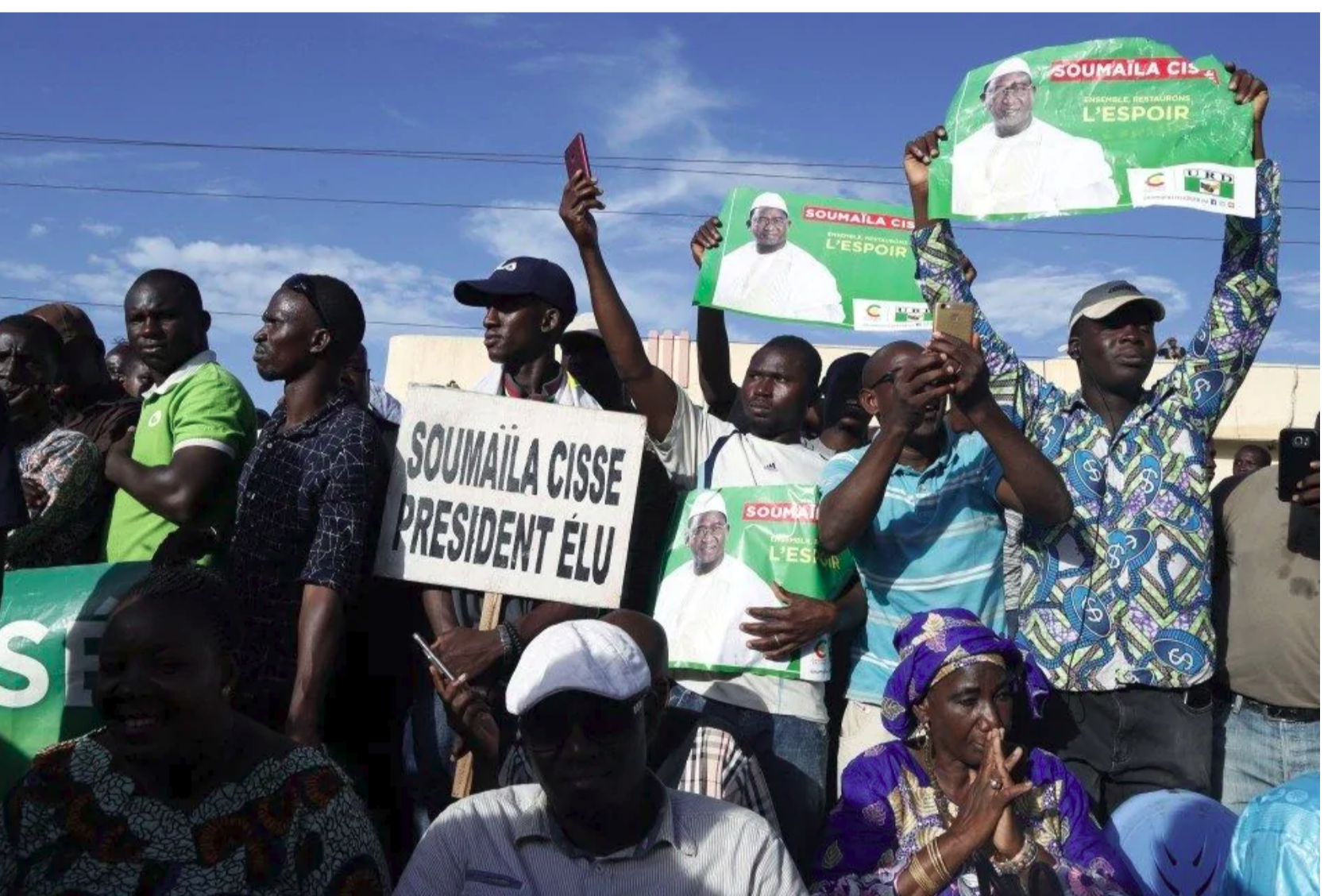NEWS
September 6, 2018

IN BRIEF
By Blair Glencorse and Moussa Kondo This op-ed was published by the Washington Post on September 6, 2018 Mali’s president, Ibrahim Boubacar Keita, has just been sworn in for a second five-year term after an election marred by violence, irregularities and low turnout. Many Malians told us that they bravely turned out to vote – not in favor of the government, but for a modicum of stability during increasingly difficult times. For this reason, the president should not take the election as an endorsement of his current brand of venal and corrupt politics. Accountability to the Malian people is urgent to support development, stem terrorism […]
SHARE
Mali’s president, Ibrahim Boubacar Keita, has just been sworn in for a second five-year term after an election marred by violence, irregularities and low turnout. Many Malians told us that they bravely turned out to vote – not in favor of the government, but for a modicum of stability during increasingly difficult times.
For this reason, the president should not take the election as an endorsement of his current brand of venal and corrupt politics. Accountability to the Malian people is urgent to support development, stem terrorism and prevent the entire Sahel region of Africa from falling further into chaos.
Previously, Mali demonstrated elements of constitutional democracy but has never been the democratic model many in the West had hoped for — and the recent vote reflected a deeper lack of governance that has plagued the country since independence from France in 1960. Mali is huge — twice the size of Texas — and has suffered from long-standing conflicts between the nomadic people of the north and the more settled groups of the south, who have traditionally held power. These tensions precipitated a military coup in 2012 and have been exploited by increasingly organized and violent Islamist groups. In the past several years these groups have killed thousands. They have massacred hostages in a popular hotel, slaughtered adults and children on buses, and ambushed military bases. The army’s response has been both ineffective and brutal.
Governance has crumbled. Mali has stumbled through five prime ministers in the past five years, and the president has appointed family members to key government posts. Organized crime has flourished, and more than 70 percent of Malians feel that the government is doing fairly badly or very badly in fighting corruption. In one regional city, the United Nations recently reported that just a third of government officials were at their posts.
This has real effects. Literacy is just over 30 percent, while hospitals lack even basic supplies. The average Malian earns less than $70 a month, and almost 1 million people — out of a population of 18 million — require food assistance.
The United Nations has deployed a peacekeeping mission of roughly 12,000 troops with a budget of about $1 billion a year for Mali, while the French, Americans, British and others have also sent troops or military support, and countries in the region have deployed a 5,000-man support force. But the solutions to Mali’s problems cannot be solved with guns – they depend on inclusive, fair and transparent governance.
Despite the challenges, Mali has a basis on which the new government can bolster trust, accountability and security. The 2015 Algiers peace accord provides for more decentralized governance in the north, with a view to bringing people closer to decisions that affect their lives. This approach could be extended into other parts of the country and bolstered through greater participation from women and young people. Security forces, too, can better share information with civil-society groups and citizens — as they did before the 2012 coup — to boost levels of trust.
There are also pockets of functionality within government that support accountability. The Office of the Auditor General has recently published several reports outlining widespread fraud and mismanagement. Senior government officials have begun to declare their finances to the Supreme Court. A new anti-corruption commission has been put in place. And hiring practices for public officials have become more transparent and merit-based.
Civil society, too, is determined and can be powerful when it remains united. The 2017 “Don’t Touch My Constitution” campaign, which brought together a variety of groups to thwart efforts to give additional powers for the president, demonstrated the strength in numbers and diversity of Mali’s activists. Watchdog groups have set up opportunities for citizens to speak to locally elected representatives about corruption in front of the media. And voices like that of the popular youth activist Mohamed Youssouf Bathily, a.k.a. Ras Bath, are also publicly questioning the behavior of the governing elite in a way that was previously unimaginable.
Meanwhile, at the grass roots, traditional conflict mediation through local leaders – such as qadis, imams or village elders – is seen by communities as generally fair. Officials are looking at ways to bring together these informal systems with more formal justice mechanisms. The 2015 peace agreement provided greater formal authority to customary leaders in relation to disputes, for example. More and better efforts to build on these existing tools for accountability would help.
Mali has become the new epicenter of the global fight against terrorism. Unfortunately, the recent election did not provide the impetus for the urgent and wholesale governance change that is now needed to bolster stability. The political elites are concerned only with their own narrow interests, not accountability to the Malian people. They must change now before it is too late.

